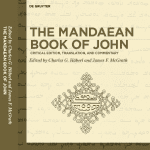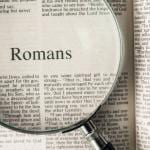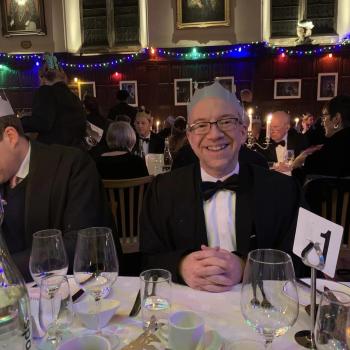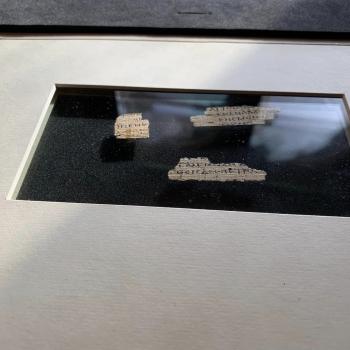Now that some details and arrangements have been finalized I can finally share details about my plans for the 2022-2023 academic year, when I will be on sabbatical to work on a book project related to John the Baptist.
First, I have the opportunity to spend time in the Holy Land this summer so that I can visit locations that have a connection with John the Baptist, who is the focus of my project for the coming year. The connections between locations and specific historical figures can be of various sorts: historical, traditional, tangential, or speculative. So places like Qasr al-Yahud, Ein Kerem, Machaerus, Yardenit, and Qumran will be on the itinerary, as well as Nablus and possible locations for Bethany beyond Jordan and Aenon near Salim. I may rent a car for at least a few days, and for a couple of places will hire a driver/guide for convenience. Public transportation is also a good option for at least some of the places that I want to go. There will also be a lot of walking. Suggestions on places to visit related to John and his context (especially ones that are less obvious), and insights from recent travel experiences to the region that may clue me in to the potential impact of the pandemic on my plans, are very welcome.
That’s just for the summer. In the fall I will have the opportunity to spend time in Oxford thanks to fellowships from the Bodleian Libraries and Magdalen College (which you should make sure you pronounce correctly). The Bodleian, as many of you will know, is not only one of the world’s most impressive libraries, but it is home to the best collection of Mandaean manuscripts that is to be found in any library in the world. There are also texts in Greek and Syriac that mention John the Baptist among their holdings, as well as all the relevant secondary literature one needs to have available when working on a project like this.
I was asked in a comment on an earlier post what exactly it is that an academic does during a sabbatical, at least in a case like mine where one is writing a book. Even then it can vary depending on the subject matter, so I will just tell about what I have begun to do and will continue doing. My project aims to produce a biography of John the Baptist (an overview of his life and emphases for a general audience) and in addition to that big picture overview, detailed academic treatment of specific questions and issues that are controversial or unresolved in which I offer arguments for my specific conclusions. Some of those details include the historical usefulness of Mandaean and Syriac Christian sources (among others) from after the New Testament; what we can learn about John from the teaching and activity of Jesus; the question of where John was from; the significance of John’s baptism as an alternative to or replacement for sacrifice; and John’s connection with Gnosticism. The process involves some investigation into libraries’ manuscript holdings. There are texts related to John the Baptist that have never been published nor translated into English. While I won’t be focusing on preparing full editions of any such texts, I will be looking at them and offering translations of excerpts where it is relevant to do so. To give an example of the kinds of things that are neglected in most discussions of John, there are Syriac manuscripts in the Mingana Collection in Birmingham and in the British Museum which record a “Prayer that John the Baptist taught his disciples.” The Mingana version reads:
ܐܒܐ ܩܕܝܫܐ ܛܪܝܢ ܒܫܪܪܟ ܘܚܘܐ ܠܢ ܫܘܒܚܟ ܘܐܘܕܥܝܢ ܠܒܪܟ ܘܡܠܝܢ ܡܪܝ ܡܢ ܪܘܚܟ ܕܢܢܗܪ ܒܝܕܥܬܟ
The version from the British Museum reads:
ܐܒܐ ܚܘܢܝ ܒܪܟ܁ ܒܪܐ ܚܘܢܝ ܪܘܚܟ܁ ܪܘܚܐ ܕܩܘܕܫܐ ܚܟܡܝܢܝ ܒܫܪܪܟ܁ ܘܐܝܬ ܕܐܡܪܝܢ ܕܗܕܐ ܗܝ܁ ܐܒܐ ܩܕܝܫܐ ܩܕܝܫܝ (ܩܕܝܫܝܢܝ) ܒܫܪܪܟ܁ ܘܐܘܕܥܝܢܝ ܫܘܒܚܐ ܕܪܒܐܬܟ ܘܗܘܢܝ ܒܪܟ ܘܡܠܝܢܝ ܡܢ ܪܘܚܟ ܕܐܬܢܗܪ ܒܝܕܥܬܟ܁
Both were deemed interesting enough by the cataloguers in question that they included the text in their catalogues. I won’t offer translations here, but for those who can read even a little Syriac, you’ll notice that both manuscripts have John teach his disciples to pray beginning with “abba.” The Gospel of Luke has Jesus offer the Lord’s Prayer/Our Father in response to a request that he teach his disciples to pray “as John taught his disciples to pray” (Luke 11:1). While some in the past have argued for or against the Lord’s Prayer originating with John the Baptist, what has been missing is a focused exploration of how the prayer as a prayer of Jesus, who had been a disciple of John’s, can inform our understanding of John. There are other connections with prayers attributed to Jesus in the New Testament. Drawing these kinds of connections and exploring new possibilities will, in the majority of instances, not involve discovering new things in neglected manuscripts, much less finding new manuscripts that are relevant (although that is a genuine possibility). The majority of time will be spent reading what other academics have published about John; reading the New Testament, Dead Sea Scrolls, and other literature related to John and his time; thinking about possibilities and trying to come up with new and hopefully better answers to questions that have been posed as well as ones that deserve to be asked but haven’t been; and writing down what emerges as a result of this work.
In the spring of 2023 I will have the honor of being the Newell Visiting Scholar at Georgia College and State University, where I will teach one class, organize some programming, and carry on working on the book – or more likely two books, as I indicated earlier, one a trade biography of John the Baptist, the other a scholarly monograph that makes the case for specific conclusions that I draw in the kind of detail academics rightly require. It will be good to present both the big picture of John’s life and activity as I understand them, and the details where I make new proposals or challenge widely-held assumptions, and to keep those two things separate for a change so that each can be done in the manner most appropriate for the intended audience. I hope that while there I can connect with some of the few Mandaeans who live in Georgia and who lack the kind of larger community that can be found in a few places in the U.S. like San Antonio, San Diego, and Boston.
That’s a broad overview of my sabbatical plans at this point. This will be my first ever yearlong sabbatical, and it is a privilege to get to work on this exciting project in several different amazing venues, starting with the locations that John himself is connected with. Returning to that topic, I look forward to recommendations not just of guides or related to transportation, but also sites that it might be easy to overlook. Thank you in advance!
For more on the Bodleian and its manuscripts:
http://blogs.bodleian.ox.ac.uk/theconveyor/bodleian-manuscripts-on-the-new-testament-virtual-manuscript-room/
There are also regularly exhibits at the Bodleian, and even if not related to my project, they will be fascinating and worth visiting. I also think that attending chapel services at Magdalen College will be incredible, their choir being world famous.
https://www.magd.ox.ac.uk/chapel-and-choir/chapel-services/chapel-services/
Of related interest, Ken Schenck has been doing a series of blog posts offering explanatory notes on the Gospel of Mark, and just recently he did one about John the Baptist.













